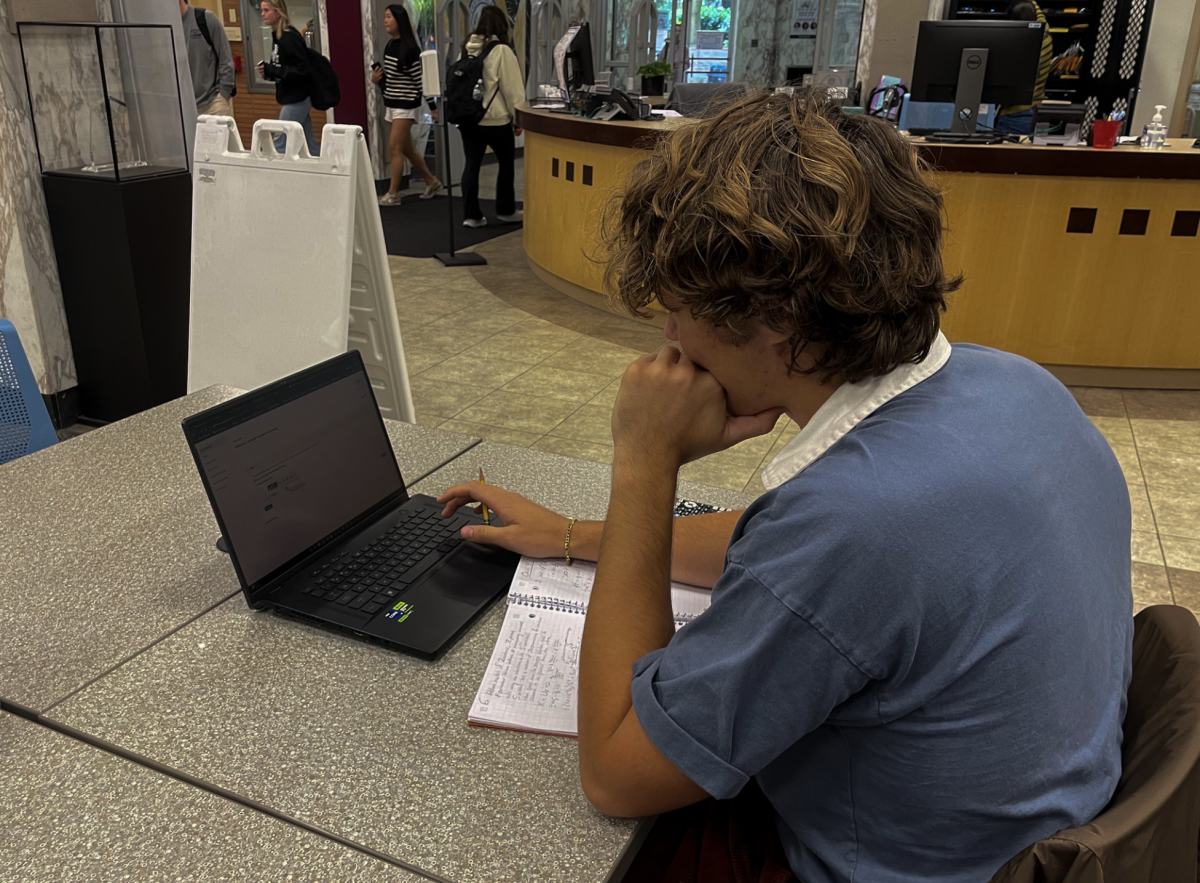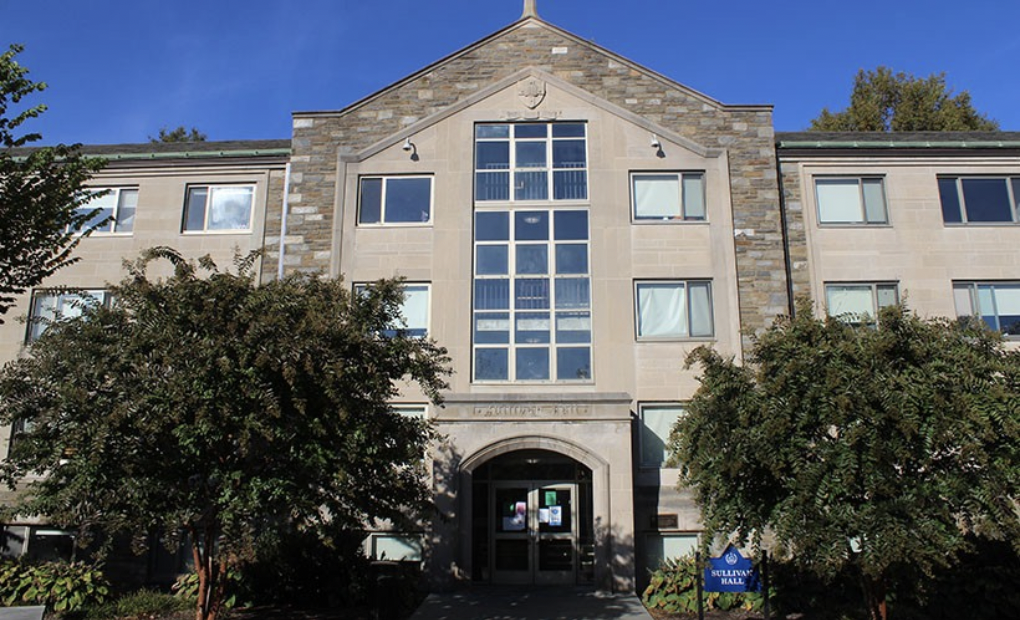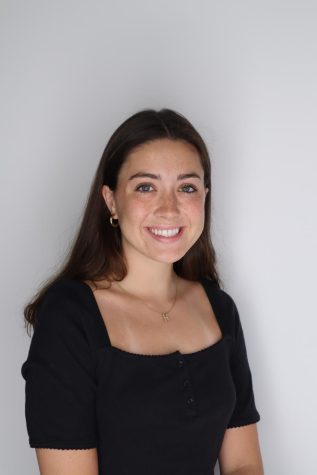On Aug. 18, the Vice Provost for Teaching and Learning Randy Weinstein sent an email to all Villanova students, informing them of the updated Code of Academic Integrity that now addresses the use of A.I.
The field of A.I., short for Artificial Intelligence, became more pertinent for Villanova students last year when generative A.I websites like ChatGPT and DALL-E infiltrated schools across the nation. These websites can create original text, art, code and music, posing a serious threat to academic integrity in schools and colleges.
In hopes to address these threats and make clear of Villanova’s policy, the updated Code of Academic Integrity now states that “academic dishonesty takes place whenever anyone undermines the academic integrity of the institution; represents as their work that they have not done themselves, including work generated through unsanctioned and/or undocumented artificial intelligence (A.I.) assistance; or attempts to gain an unfair advantage over others.”
While completing full assignments using A.I is now considered a violation of academic integrity at Villanova, the use of A.I websites is not totally banned. Since A.I is still relatively new, the University is leaving it up to the individual faculty member to allow or prohibit the use of these websites in their courses. Some teachers have begun using these websites to aid students’ learning.
English professor Megan Quigley is one of those professors. She has used ChatGPT to improve her students’ critical thinking and editing skills.
“I don’t believe in just banishing it,” Quigley said. “Well, for certain assignments I do. I already have assignments in my classes where the students give a paper prompt to ChatGPT and then we analyze what it produces for its strengths and weaknesses.”
Other teachers are changing their assignments to prevent students from using A.I to complete their assignments for them.
Seth Matthew Fishman, Assistant Dean for College of Arts and Sciences and professor of Education and Counseling, has already replaced one of his assignments. He said that the assignment was not effective anymore, as it could be fully completed by A.I.
“The paper was to write about the history of higher education,” Fishman said. “Instead, I replaced that assignment with ‘tell me about your academic history,’ so it is completely personal and individual to the student. Chat GPT does not know your history. This gives students a chance to then reflect critically about their academic journey and it does not change the purpose or lose the meaning of the assignment.”
Yet, most teachers added that, although websites like ChatGPT can be useful tools, they do not replace certain human skills.
“I don’t want to lose the value of liberal arts education,” Fishman said. “The human element, and not forgetting we aren’t a bunch of robots. There are people involved and feelings and beliefs and ideas that generative A.I. can’t account for.”
“I would say that, for me, writing and thinking go hand in hand,” Quigley said. “Analyzing and synthesizing information, finding out what a strong versus weak claim is, whether you need those skills for law or teaching or writing or journalism, I think you are still going to need to have them.”
As seen through the new teaching approaches from professors, A.I is already changing the way students learn. However, opinions on whether this change is harmful or beneficial varies among students. Computer engineering student Sola Dugbo believes that A.I has already improved his efficiency and ability to understand material.
“A.I. is definitely the future of learning,” Dugbo said. “It has already completely transformed the way I approach school. It used to be whenever I didn’t know something I’d have to Google it or find a YouTube video online. Even after doing that, I’d still be left with very specific questions that I wouldn’t be able to find answers for. To figure it out, I would often have to go find a teacher to ask. But now with ChatGPT, I can ask very specific questions about the topics, and it explains it in a way that is personally tailored to me, improving my understanding and making it easier to learn. I think that the way it explains things to you is such an advantage to have in learning.”
While teachers and students expressed both optimism and concern for the future of learning and teaching with A.I, most agreed that it is too early to tell its full effects.
“We are in a transition point,” psychology professor Deena Weisberg said. “This has been a new addition to the arsenal of tools that we have added to our research. History suggests it is neither good or bad, or it just depends on how it is used or how it is framed.”
“I have been really open to seeing how it is,” Fishman said. “I think that is an area where I want to sit back a little bit and see the potential benefits and challenges. I am in a ‘waiting and watching’ mode. I think it is really going to vary by faculty and discipline.”
“It is something that is always changing,” Quigley said. “I see there is a huge variety of things that could happen from the Khan Academy approach where it becomes sort of a 24-hour tutor, to detrimentally undermining students’ abilities to think through writing. There is no way to know if it is going to help us. Like, is it a tool like Grammarly? Or is it going to block people from learning the skills they need to write to the tools they need to think?”
“It isn’t going away,” Fishman said. “It’s already here.”








